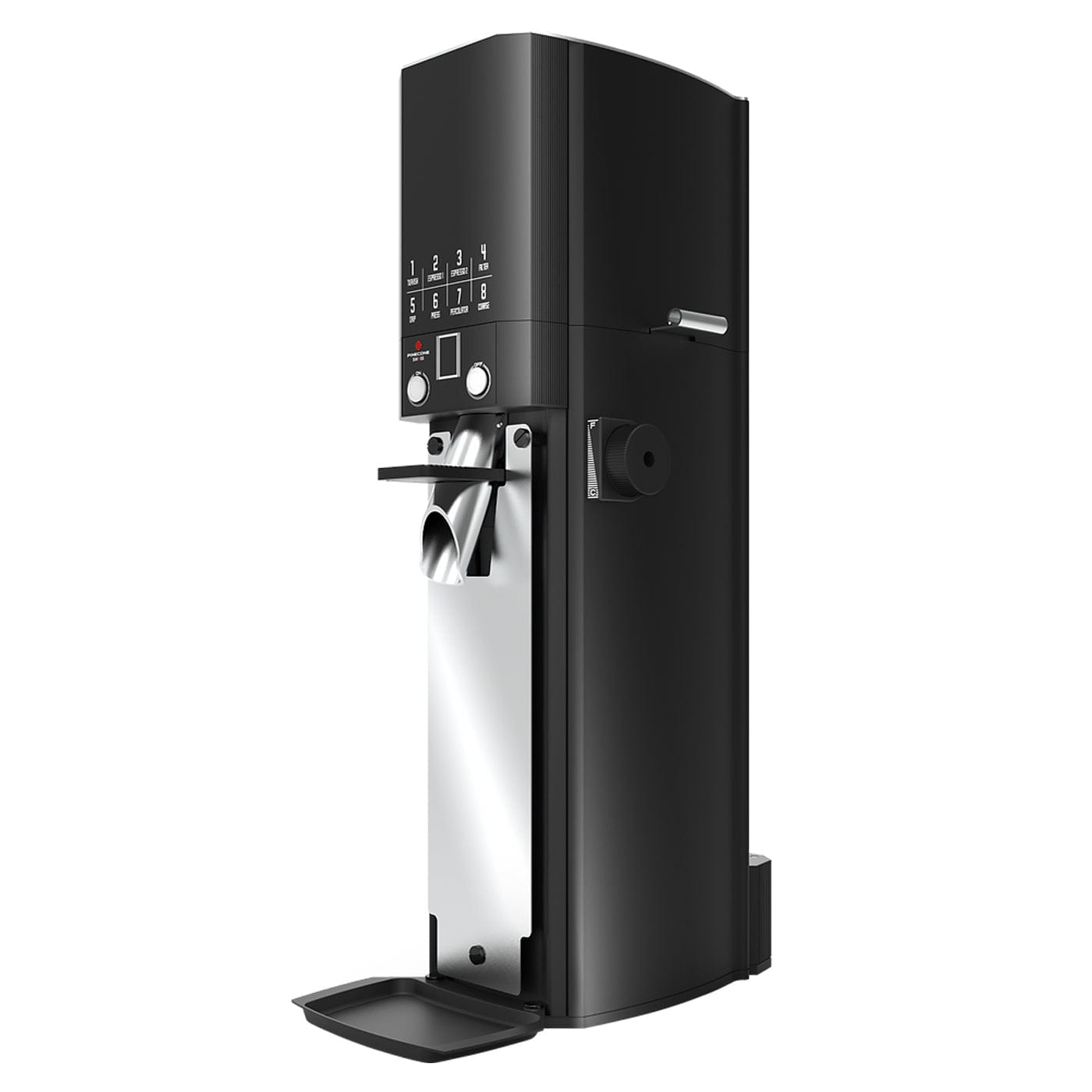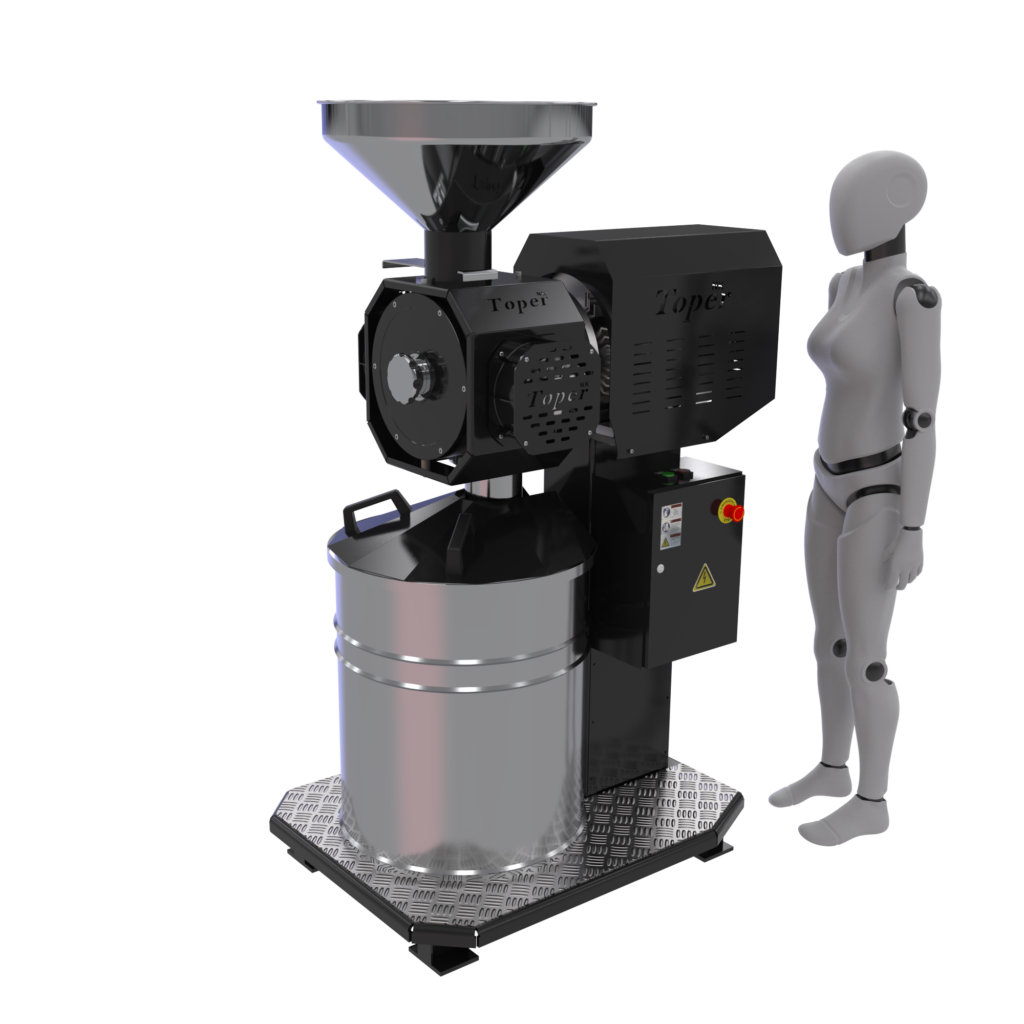Key Benefits of Using an Industrial Coffee Grinder for Your Business
Wiki Article
Industrial Coffee Mill Overview: Boost Performance and Quality
In the affordable landscape of coffee manufacturing, selecting the appropriate industrial coffee mill plays a crucial function in improving both performance and product top quality. Understanding the nuances of numerous grinder kinds and crucial attributes-- such as adjustable work settings and durable construction-- can dramatically influence the final flavor account of the coffee. The optimization of the grinding procedure, paired with diligent maintenance, is essential for maintaining efficiency over time. As we discover these crucial elements, it ends up being noticeable that the implications extend beyond plain equipment option, affecting total organization success in manner ins which necessitate closer examination.Comprehending Mill Types
When choosing a commercial coffee mill, understanding the numerous types readily available is essential for optimizing both taste extraction and functional efficiency. The 2 main types of mills are blade mills and burr mills.
Eventually, selecting the ideal kind of grinder is integral to keeping high quality and efficiency in coffee production, making it vital for services to buy top notch burr grinders for ideal outcomes.
Secret Features to Think About
Picking an industrial coffee grinder requires mindful consideration of several crucial attributes that can significantly affect both efficiency and the overall coffee experience. One of the main elements to assess is the grinding system. Burr mills are normally preferred over blade grinders, as they supply a consistent work size, which is important for optimum removal and taste.An additional vital feature is the grinder's capability. Depending upon the volume of coffee you need to process, select a design that can handle your needs without compromising rate or quality. Additionally, consider the work setups offered. A versatile mill with numerous settings enables you to customize the grind size to different developing methods, enhancing the coffee's flavor profile.
The construction material also contributes in longevity and upkeep. Stainless steel parts usually supply durability and are simpler to clean, which is important for maintaining health requirements. Lastly, evaluate the grinder's sound level, specifically in a hectic café or production environment, where too much noise can be turbulent. Purchasing a mill that balances these attributes can substantially improve both functional performance and the high quality of the coffee served.
Optimizing Grinding Refine
To attain the most effective outcomes in coffee prep work, optimizing the grinding process is essential. The grind dimension significantly useful reference influences extraction, taste, and total high quality of the made coffee. Various developing approaches require details work dimensions; for circumstances, espresso demands a fine work, while French press demands a rugged appearance. Recognizing the relationship between work size and brewing method is the initial step in optimization.


In addition, monitoring the grinding speed can optimize the process. Slower grinding typically creates less heat, protecting fragile tastes and scents. On the other hand, quicker grinding might generate extreme warm, negatively impacting the coffee's high quality.
Upkeep and Treatment Tips
Correct upkeep and treatment of commercial coffee grinders are essential for guaranteeing optimal performance and long life. Routine cleaning is the structure of upkeep; deposit buildup can affect taste and grinding effectiveness. It is advisable to clean the mill after each use, wiping down the outside and getting rid of any kind of coffee grounds from the burrs.Additionally, inspect the grinding burrs for damage. Boring burrs can compromise grind uniformity, so they must be replaced as essential. Industrial Coffee Grinder. Regularly calibrating the grinder is additionally vital, as this preserves the wanted work dimension for various brewing techniques
Lubrication of moving parts must be executed according to the maker's requirements, as this lowers friction and lengthens the life of the devices. It is vital to utilize food-grade lubes to make certain security and conformity with health and wellness regulations.
Lastly, maintain the grinder in a stable and dry environment to avoid rust and deterioration. By adhering to these maintenance and care tips, operators can boost the efficiency of their commercial coffee mills while ensuring premium result and extended operational life.
Roi Evaluation
Examining the roi (ROI) for commercial coffee mills is important for businesses seeking to enhance their coffee production abilities. A thorough ROI analysis assists establish the economic viability of purchasing top quality grinders, allowing companies to evaluate the click for info preliminary expenses against possible gains.Assess the purchase price of the mill, including installation and any kind of needed adjustments to existing facilities. High-performance grinders often lead to lowered grinding time and boosted throughput, which can considerably enhance efficiency.
Additionally, think about the effect on item quality. Industrial Coffee Grinder. Superior mills yield an even more constant work dimension, which can enhance taste accounts and customer contentment, inevitably driving sales. By increasing the quality of the end product, organizations can justify greater prices, resulting in increased revenue
Verdict
In recap, a commercial coffee mill plays an essential function in enhancing from this source both performance and product quality within coffee production. Ultimately, the strategic investment in a reliable mill contributes substantially to improved revenue and competition in the coffee market.In the affordable landscape of coffee production, picking the ideal commercial coffee grinder plays a pivotal role in improving both efficiency and product quality. The two primary types of grinders are blade mills and burr mills. Within the burr mill category, there are flat burr grinders and conical burr mills, each with its advantages. Burr mills are typically liked over blade mills, as they provide a constant work dimension, which is vital for ideal removal and flavor.
In summary, an industrial coffee grinder plays a critical role in improving both efficiency and product quality within coffee production.
Report this wiki page